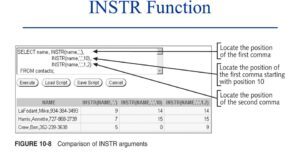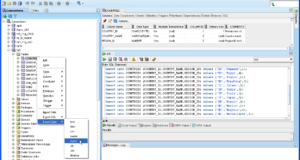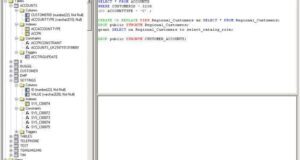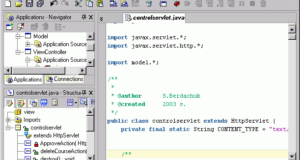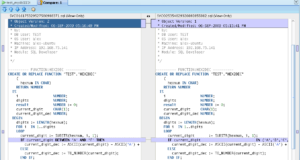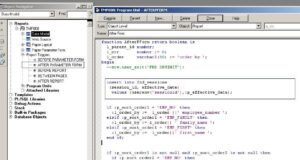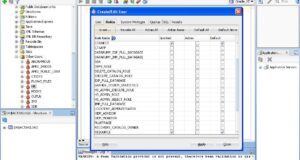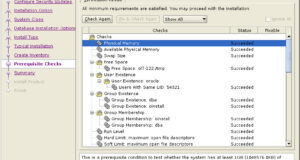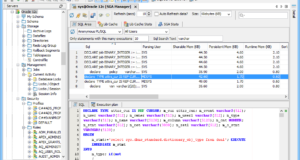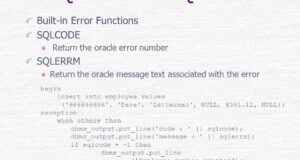Tag: PLSQL
The Oracle/PLSQL INSTR function returns the n-th occurrence of a substring in a string. Oracle/PLSQL INSTR function syntax INSTR( string1, substring1 [, start_position_id [, nth_appearance_id ]...
The Oracle/PLSQL INITCAP function sets the first character of each word in upper case, and the rest in lower case. Syntax of the Oracle/PLSQL INITCAP function INITCAP( string1_id ) Parameters...
The Oracle/PLSQL DUMP function returns a value of varchar2, which includes data type code, length in bytes, and the internal representation of the expression. Oracle/PLSQL DUMP function...
Oracle/PLSQL concatenation operator || allows to combine two or more lines together. Syntax for the Oracle/PLSQL statement || string1_id || string2_id || string_n_id Operator parameters and...
The Oracle/PLSQL CONCAT function allows two lines to be connected together. Syntax of the Oracle/PLSQL CONCAT function CONCAT( string1_id, string2_id ) Parameters and function arguments...
The Oracle/PLSQL COMPOSE function returns the Unicode string. Oracle PLSQL COMPOSE function syntax COMPOSE( string_id ) Parameters and function argumentsstring_id - is an input value...
The Oracle/PLSQL CHR function is the opposite of the ASCII function. CHR returns a character that is based on numeric code. Syntax of the Oracle/PLSQL CHR function CHR (number_code_id)...
The Oracle/PLSQL ASCIISTR function converts a string of any character set to an ASCII string using the database character set. Syntax of the Oracle/PLSQL function ASCIISTR ASCIISTR( string_id...
The Oracle/PLSQL ASCII function returns the numeric representation of the leftmost character of the string. Syntax of the Oracle/PLSQL ASCII function ASCII( single_character_id )...
Oracle PL/SQL FunctionsFunction DescriptionBFILENAME The Oracle/PLSQL function returns the BFILENAME locator corresponding to the operating system's physical filename file...
Oracle/PLSQL USERENV function is used to get information about the current Oracle session. Although this function still exists in Oracle for backward compatibility, it is recommended to use the...
Oracle/PLSQL USER function returns user_id from the current Oracle session. Oracle/PLSQL syntax of the USER function USER Parameters or arguments The USER function has no parameters or...
Oracle/PLSQL function UID returns an integer number identifying the current database user. Oracle/PLSQL syntax of UID functions UIDThe UID function has no parameters or arguments.The...
Oracle/PLSQL function SYS_CONTEXT is used to get information about the state of Oracle environment. Syntax of Oracle/PLSQL function SYS_CONTEXT SYS_CONTEXT( namespace_id, parameter_id, [...
The SQLERRM function returns an error message related to an exceptional situation. This function can only be used in the exception handling section of your code. Syntax of SQLERRM...
The SQLCODE function returns the error number associated with an exceptional situation. This function can only be used in the exception handling section of your code. SQLCODE function...

